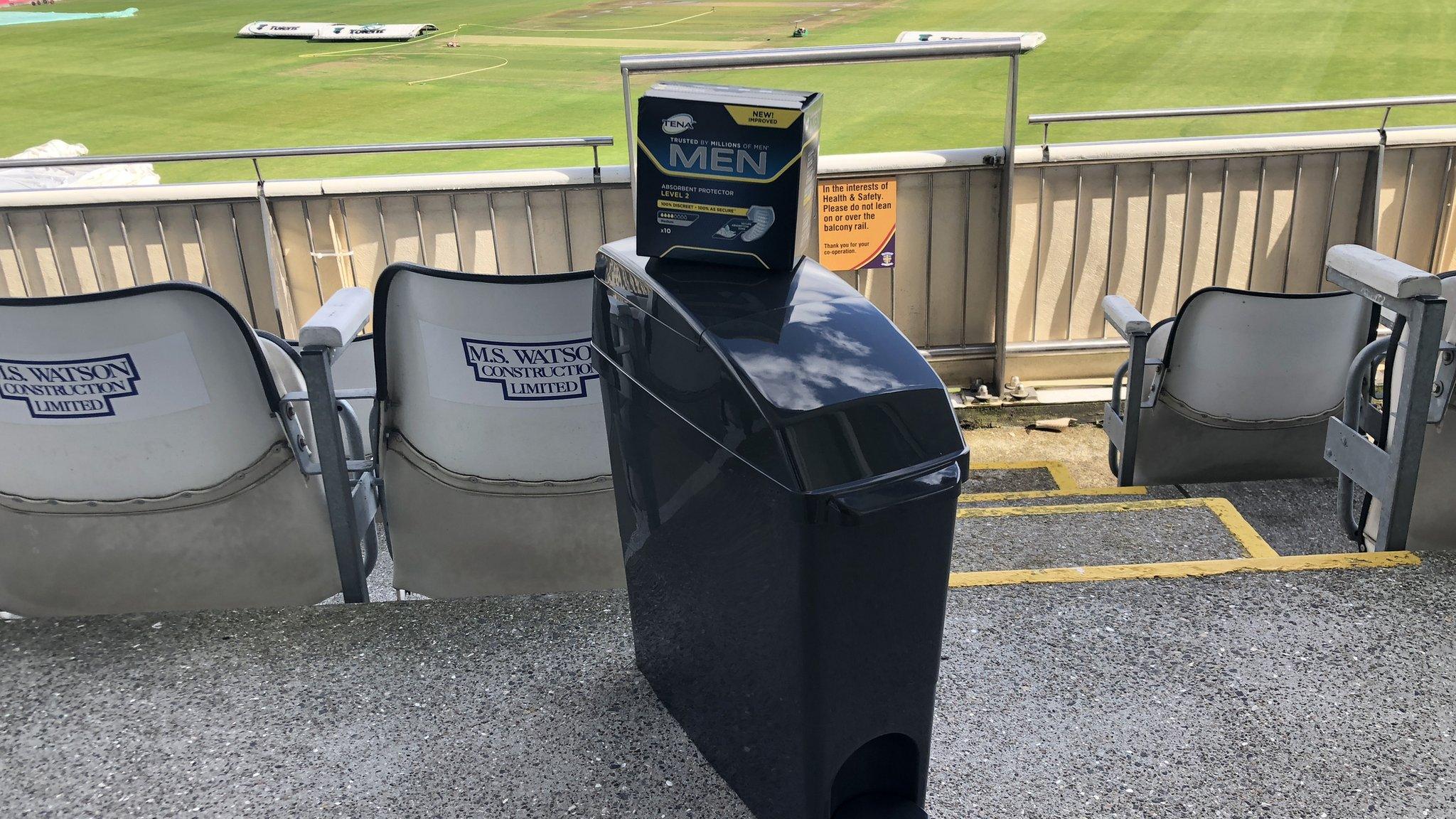Male incontinence: Breaking the taboo around 'silent suffering'
- Published
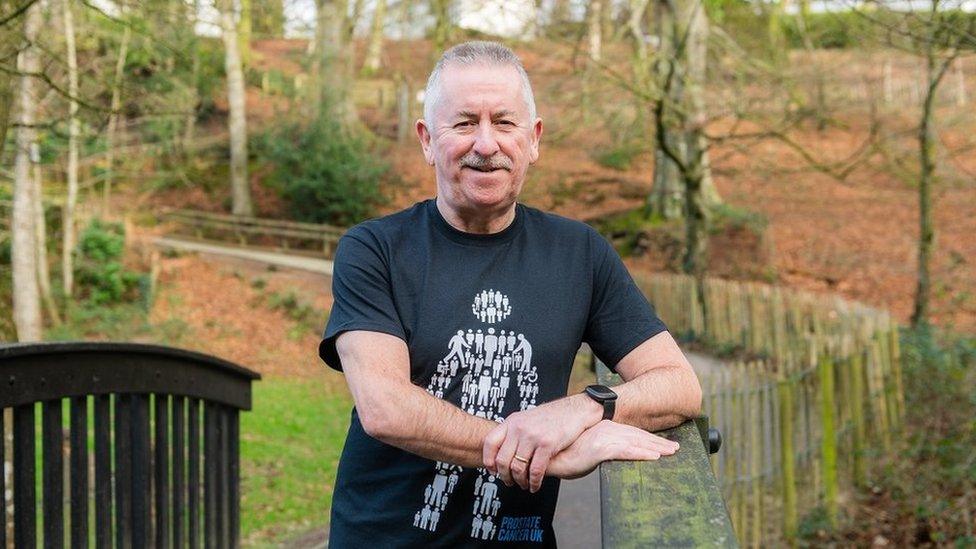
Frank McNally is now trying to help other men with the condition
"It was traumatic. I lost a lot of confidence and didn't want to go out."
When County Tyrone man Frank McNally was diagnosed with prostate cancer at the age of 50, he was devastated.
The now 65-year-old from Dungannon was treated for the disease and is now working to highlight the issue of urinary incontinence, which is a common side effect.
It comes after a charity said hundreds of thousands of men living with the condition were suffering in silence.
Prostate Cancer UK told BBC News NI there was a "taboo" around it, with incontinence being seen as a "woman's issue".
The charity is also calling for male incontinence bins in men's toilets so those who use incontinence pads can dispose of them.
For Mr McNally, who works for the Department for Infrastructure, his cancer diagnosis came out of the blue, after a routine health check.
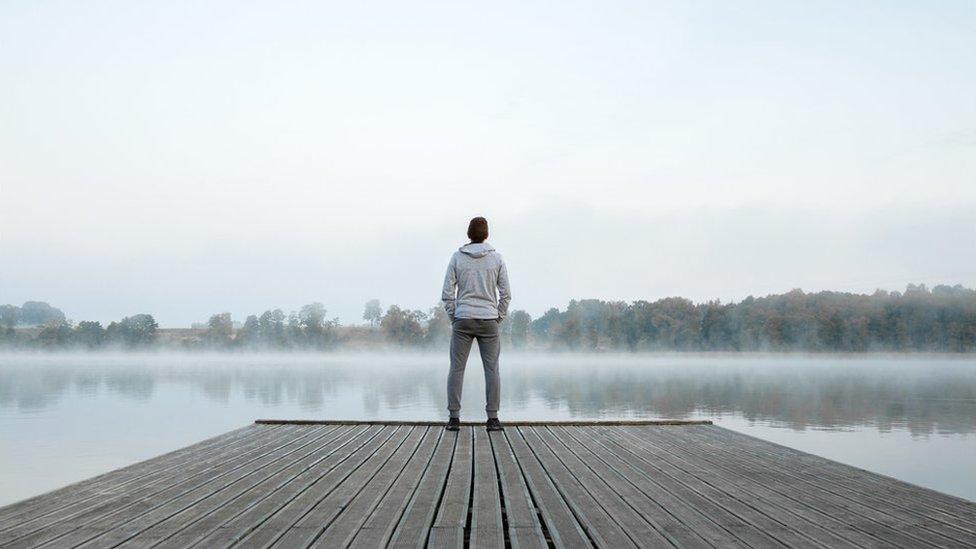
Prostate Cancer UK says that many men do not feel confident going out wearing a pad
At 50, he was active and feeling well but his doctor did a prostate specific antigen (PSA) blood test.
In doing so his GP saved his life, he said. More tests at Craigavon Area Hospital revealed he had cancer.
"I had none of the common symptoms attached to prostate cancer," he told BBC News NI.
"I was devastated - it was a lot to get my head round - I didn't even know what a prostate was back then," he added.
Northern Ireland's Department of Health said more than 1,100 men in Northern Ireland are diagnosed with prostate cancer every year.
Side effects
However, after Mr McNally came through the surgery he was left with a new set of problems.
"The side effects for me were erectile dysfunction and urinary incontinence," he said.
"I wasn't ready mentally to deal with it. I was told there could be leakage but I wasn't ready for the leakage that occurred," he added.
"It was traumatic. I lost a lot of self confidence.
"I didn't want to go out. I didn't want to socialise, because I just was very aware I could need to change my pad," he said.
"Initially the pads that I used were large and uncomfortable like nappies," he added.
"No matter where I went the first thing I looked for was for was, 'where's the nearest toilet?' because I knew I would need it."
He said the condition has improved a lot over time and he now needs fewer pads, praising the "help and support" from his hospital team.
However, he highlighted issues in day-to-day life - such as going golfing and having to change pads.
"There was nowhere hygienically to dispose of it," he said.
This lead Mr McNally to having to wrap it up and take it home.
He said he would like to see more bins for pads as well as vending machines in toilets.
"For a man with incontinence it would give a bit of dignity," he said.
Survivor
Mr McNally now travels around Northern Ireland sharing his story to raise awareness and "give back".
"It's a fact of life. You may never be cured of it but there's ways of coping with it," he said.
He said he hopes the younger generation will talk more about subjects like this.
"The more people like me talk about it the more men will open up," he said.
Mr McNally is enjoying life with his wife, five children and 12 grandchildren and as a "survivor" he wants to help start a conversation with other men.
Urologist Ian Walsh, from the Belfast Trust and Kingsbridge Private Hospital, said stories like Frank's were important to hear.
"It's unfortunate that there's a taboo around it - there really shouldn't be," he told BBC Radio Ulster.
"We went through this with female urinary incontinence when folk took it as a natural consequence of aging or something to be ashamed of.
"Then people came to release it's an illness like any other and there is treatment available for it," he added.
"The trouble with urinary incontinence is it's so intrusive into quality of life and people become socially isolated - that's not good for mental health."
He said there were many other causes of the condition, as well as prostate cancer treatment.
"The sooner you get treatment the more likely it is to be effective," he added.
Prostate Cancer UK said the issue was "shrouded in secrecy and shame" and men who experience the condition could become "socially isolated, anxious and depressed".
The charity said that for the 475,000 men living with or after prostate cancer in the UK, many will experience urinary incontinence as a side effect of treatment for the disease.
A UK-wide study from the charity and phs Group showed that two thirds of men with incontinence feel anxious leaving home due to a lack of facilities.
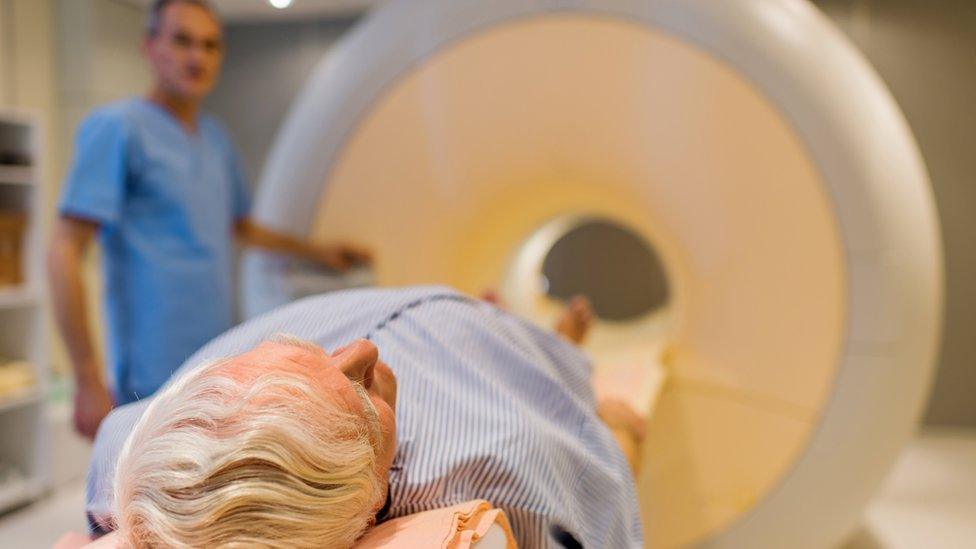
In Northern Ireland, more than 1,100 men are diagnosed with prostate cancer every year
What are the rates of prostate cancer in NI?
From April to November 2022, 946 patients were treated for prostate cancer, according to the Department of Health.
Of these, 850 (89.8%) were treated within 31 days of the date of decision to treat.
In March 2022, then-Health Minister Robin Swann published a 10-year cancer strategy, external.
Related topics
- Published22 June 2022
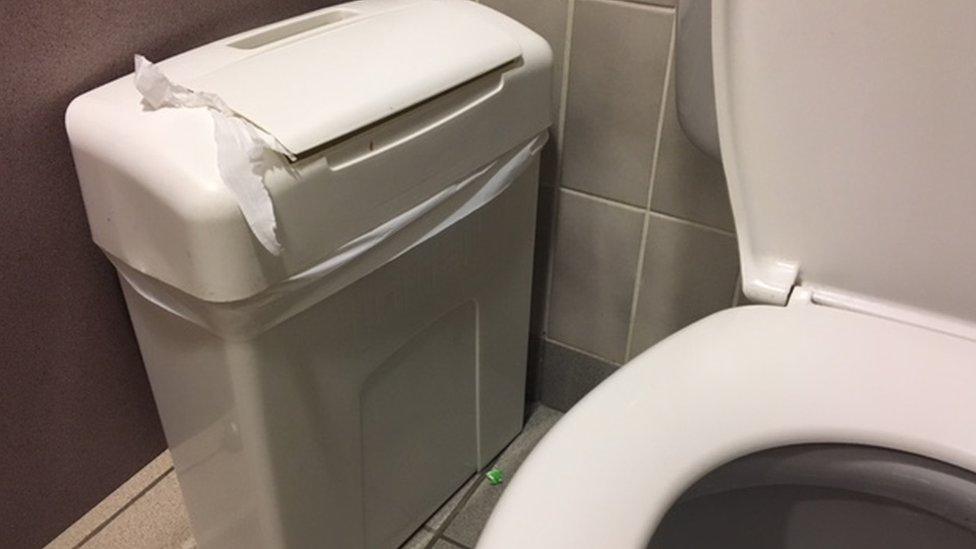
- Published18 September 2018
